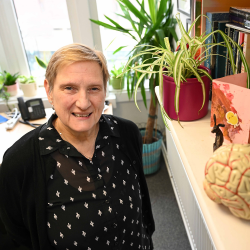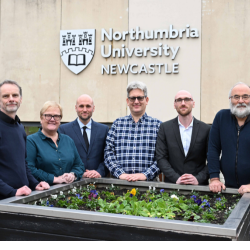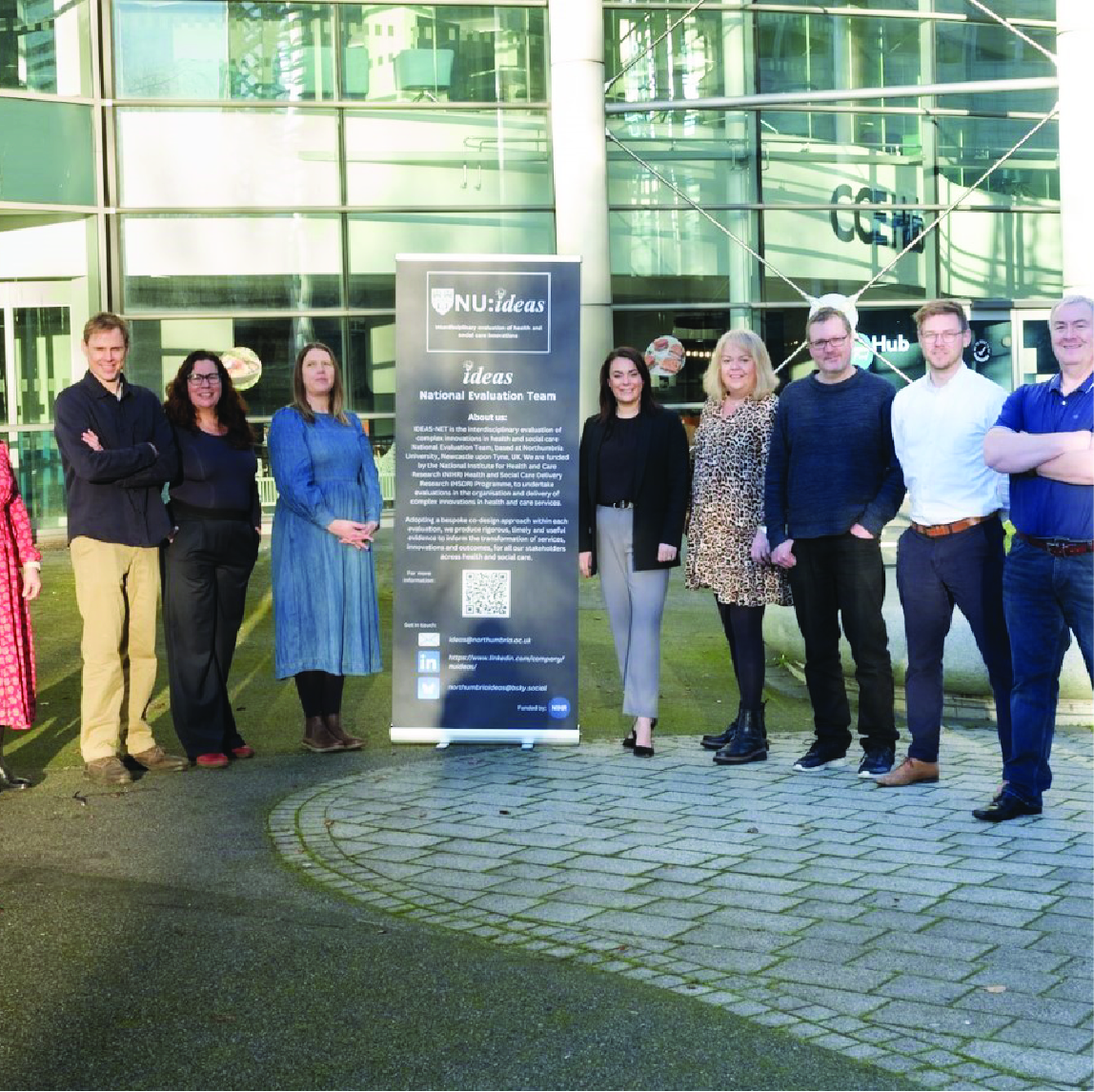-
Study
-
Quick Links
- Course Search
- Unlock Your Potential
- Still time to Apply
- Higher and Degree Apprenticeships
- Continuing Professional Development
- Still time to apply
-
Undergraduate
- Course Search
- Application Guides
- UCAS Exhibitions
- Foundation Years
- Fees and Funding
- School & College Outreach
- Information for Parents
-
Postgraduate
- Course Search
- Application Guide
- Postgraduate Research Degrees
- Flexible Learning
- Fees and Funding
- Change Direction
- Register your Interest
-
Student Life
- Students' Union
- The Hub - Student Blog
- Accommodation
- Northumbria Sport
- Support for Students
-
Experience Northumbria
- Open Days & Events
- Virtual Tours
- Campus Tours
- Life in Newcastle
-
-
International
International
Northumbria’s global footprint touches every continent across the world, through our global partnerships across 17 institutions in 10 countries, to our 277,000 strong alumni community and 150 recruitment partners – we prepare our students for the challenges of tomorrow. Discover more about how to join Northumbria’s global family or our partnerships.
View our Global Footprint-
Quick Links
- Course Search
- Undergraduate Study
- Postgraduate Study
- Information for Parents
- London Campus
- Northumbria Pathway
- Sign up for Information
-
International Students
- Information for Students
- International Events
- Application Guide
- Entry Requirements and Education Country Agents
- Global Offices
- English Requirements
- English Language Centre
- International student support
-
International Fees and Funding
- International Undergraduate Fees
- International Undergraduate Funding
- International Masters Fees
- International Masters Funding
- International Postgraduate Research Fees
- International Postgraduate Research Funding
-
International Partners
- Agent and Representative Network
- Global Partnerships
- Global Community
-
International Mobility
- Information for Northumbria Students
- Information for Incoming Exchange Students
-
-
Business
Business
The world is changing faster than ever before. The future is there to be won by organisations who find ways to turn today's possibilities into tomorrows competitive edge. In a connected world, collaboration can be the key to success.
More on our Business Services -
Research
Research
Northumbria is a research-rich, business-focused, professional university with a global reputation for academic quality. We conduct ground-breaking research that is responsive to the science & technology, health & well being, economic and social and arts & cultural needs for the communities
Discover more about our Research -
About Us
-
About Northumbria
- Our Strategy
- Our Staff
- Place and Partnerships
- Leadership & Governance
- Academic Departments
- University Services
- History of Northumbria
- Contact us
- Online Shop
-
-
Alumni
Alumni
Northumbria University is renowned for the calibre of its business-ready graduates. Our alumni network has over 246,000 graduates based in 178 countries worldwide in a range of sectors, our alumni are making a real impact on the world.
Our Alumni - Work For Us
What will I learn on this module?
In both basic neuroscience research, and within the investigation of a neurological disorder, different neuroscience disciplines contribute to the investigation process. In the lecture/seminar series you will learn about techniques utilised in these investigations and will study aspects of practical Neuroscience to include lecture based discussion on e.g. Neuroanatomy, Neurophysiology, Molecular neuroscience, Ethics and Law. Taking the principles you have learned from the lecture/seminar series you will apply these to the creation of a group portfolio on an area of either basic research or disease study. This will aid you in learning the negotiating and social skills required to successfully navigate team dynamics in a constructive manner.
How will I learn on this module?
In the initial phase of the course students will receive lectures on key disciplines of Neuroscience practice. These will be followed by one hour of post lecture discussion between students and staff to cement ideas/knowledge raised in the staff presentation. On completion of the lecture/seminar series you will be assigned to a group of fellow students with the purpose of producing a group portfolio that applies the knowledge derived from the lectures/seminars to a real life scenario. As part of this group you will take responsibility for producing an individual, written, chapter of the portfolio that explores in more detail concepts raised by the lecture series. Staff will provide regular feedback on the content and structure of the portfolio through regular meetings with each student group. The creation of the portfolio will allow you to generate an appreciation of dynamics within team working. Since most modern science/research is the product of multiple collaborative teams then this will provide you with team working experience that is relevant to the work place.
How will I be supported academically on this module?
All lecture materials and directed reading will be posted onto the elp site for this module. Immediate staff feedback will be provided in the discussion session post-lecture. These discussion sessions will provide you with the chance to ask for clarification of lecture content and will give you a relaxed forum in which to discuss new and current methodologies in Neuroscience practice. When undertaking the portfolio exercise you will be assigned an individual staff member who will provide advice and feedback on the creation/content of your portfolio both at an individual and group level. After submission and marking of the portfolio you will be provided with constructive feedback on your performance both as an individual and as a whole team.
What will I be expected to read on this module?
All modules at Northumbria include a range of reading materials that students are expected to engage with. Online reading lists (provided after enrolment) give you access to your reading material for your modules. The Library works in partnership with your module tutors to ensure you have access to the material that you need.
What will I be expected to achieve?
Knowledge & Understanding:
1- You will develop an understanding of current techniques involved in Neuroscience practice in relation to diagnosing disease and the generation of new knowledge.
Intellectual / Professional skills & abilities:
2- You will learn to critically evaluate current research which will contribute to the development of critical thinking.
3- As well as the importance of your own individual contribution you will learn to appreciate team dynamics/teamwork in creating a jointly produced outcome.
4. You will enhance your professional writing skills.
Personal Values Attributes (Global / Cultural awareness, Ethics, Curiosity) (PVA):
5. You will seek to understand the importance of ethical issues and the law both in the current practice of Neuroscience and in response to new developments.
How will I be assessed?
Your assessment will be a group portfolio submission [(100% Marks); MLO tested 1,2,3,4,5]
The award of marks will be broken down as follows:
70% Marks will be allocated to your individual chapter production.
20% Marks will be allocated to you based on an assessment of the overall quality of the group portfolio.
10% marks will be based on peer review of team dynamics. Each student will be asked to provide a reflective account of their team dynamics and to judge the contribution of their colleagues by awarding each colleague a mark out of ten for contribution. This will be averaged, for each student, and the final mark added to the appropriate individual mark to give you your overall mark.
Formative feedback will be provided by post seminar discussion, by interaction with staff members allocated to your group portfolio and by pre-submission reading and feedback of your portfolio by that staff member.
Pre-requisite(s)
Anatomy and Physiology; Neuroscience; Neuroscience Case Studies
Co-requisite(s)
N/A
Module abstract
Study on the Neuroscience in Practice module will provide you with a current understanding of the roles of different Neuroscience disciplines in investigating basic Neuroscience research and/or neurological disease. The lecture/seminar series is designed to provide you with a fundamental understanding of practical methods designed to elucidate diagnosis of a neurological disease or to create new knowledge. The post lecture seminars will help you to strengthen your knowledge of these methods and will encourage you to learn to critically evaluate current research papers. This will aid you in writing a chapter of a portfolio to be compiled through group interaction. By working as part of a team you will learn to develop co-working skills which are highly valued by employers.
Course info
UCAS Code C100
Credits 20
Level of Study Undergraduate
Mode of Study 3 years Full Time or 4 years with a placement (sandwich)/study abroad
Department Applied Sciences
Location City Campus, Northumbria University
City Newcastle
Start September 2025 or September 2026
All information is accurate at the time of sharing.
Full time Courses are primarily delivered via on-campus face to face learning but could include elements of online learning. Most courses run as planned and as promoted on our website and via our marketing materials, but if there are any substantial changes (as determined by the Competition and Markets Authority) to a course or there is the potential that course may be withdrawn, we will notify all affected applicants as soon as possible with advice and guidance regarding their options. It is also important to be aware that optional modules listed on course pages may be subject to change depending on uptake numbers each year.
Contact time is subject to increase or decrease in line with possible restrictions imposed by the government or the University in the interest of maintaining the health and safety and wellbeing of students, staff, and visitors if this is deemed necessary in future.
Useful Links
Find out about our distinctive approach at
www.northumbria.ac.uk/exp
Admissions Terms and Conditions
northumbria.ac.uk/terms
Fees and Funding
northumbria.ac.uk/fees
Admissions Policy
northumbria.ac.uk/adpolicy
Admissions Complaints Policy
northumbria.ac.uk/complaints









